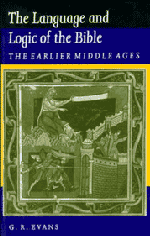Book contents
- Frontmatter
- Contents
- Preface
- Acknowledgements
- List of abbreviations
- List of ancient and mediaeval sources
- Biographical notes
- Introduction
- Part I The background
- Part II Lectio: surface and depths
- 4 Words and things and numbers
- 5 The historical sense and history
- 6 Exegesis and the theory of signification
- 7 Transference of meaning
- Part III Disputatio
- Conclusion
- Notes
- Select bibliography
- Index
7 - Transference of meaning
Published online by Cambridge University Press: 01 June 2011
- Frontmatter
- Contents
- Preface
- Acknowledgements
- List of abbreviations
- List of ancient and mediaeval sources
- Biographical notes
- Introduction
- Part I The background
- Part II Lectio: surface and depths
- 4 Words and things and numbers
- 5 The historical sense and history
- 6 Exegesis and the theory of signification
- 7 Transference of meaning
- Part III Disputatio
- Conclusion
- Notes
- Select bibliography
- Index
Summary
Similitudes and analogies
It was common doctrine that a likeness to help him understand (similitudo) is the best that can be made available to man when he seeks to know God. It is a device employed by God himself as author of Holy Scripture. ‘The angels have the truth; you have a likeness’, says Peter of Celle. The ‘likeness’ is the way to the truth. The mind may travel from what it understands easily and directly to what it can understand only by a ‘sideways’ or ‘upwards’ movement of comparison. If you believe you have a likeness and not yet truth, he promises ‘you will come from the likeness to the truth’.
The term similitudo came readily to mind because of the Genesis account of the creation of man in the ‘image and likeness of God’ (Gen. 1:26). In this connection the difference between imago and similitudo seemed to many commentators to require clarification. Sometime earlier, in the late eighth century, Alcuin had suggested a simple and patristic explanation in his Quaestiones in Genesim. The imago is eternal; the similitudo is not eternal, but a matter of mos, behaviour, for a man may ‘behave like’ God or he may not. Hugh of St Victor takes a similar line. Man is the image of God in his very appearance: imago est in lineamentis similibus. The similitudo is a matter of ‘participation in some divine property’ (in cuiuslibet eiusdem proprietatis participatione). It can be lost to a man; it is variable, changeable, fleeting.
- Type
- Chapter
- Information
- The Language and Logic of the BibleThe Earlier Middle Ages, pp. 101 - 122Publisher: Cambridge University PressPrint publication year: 1984



